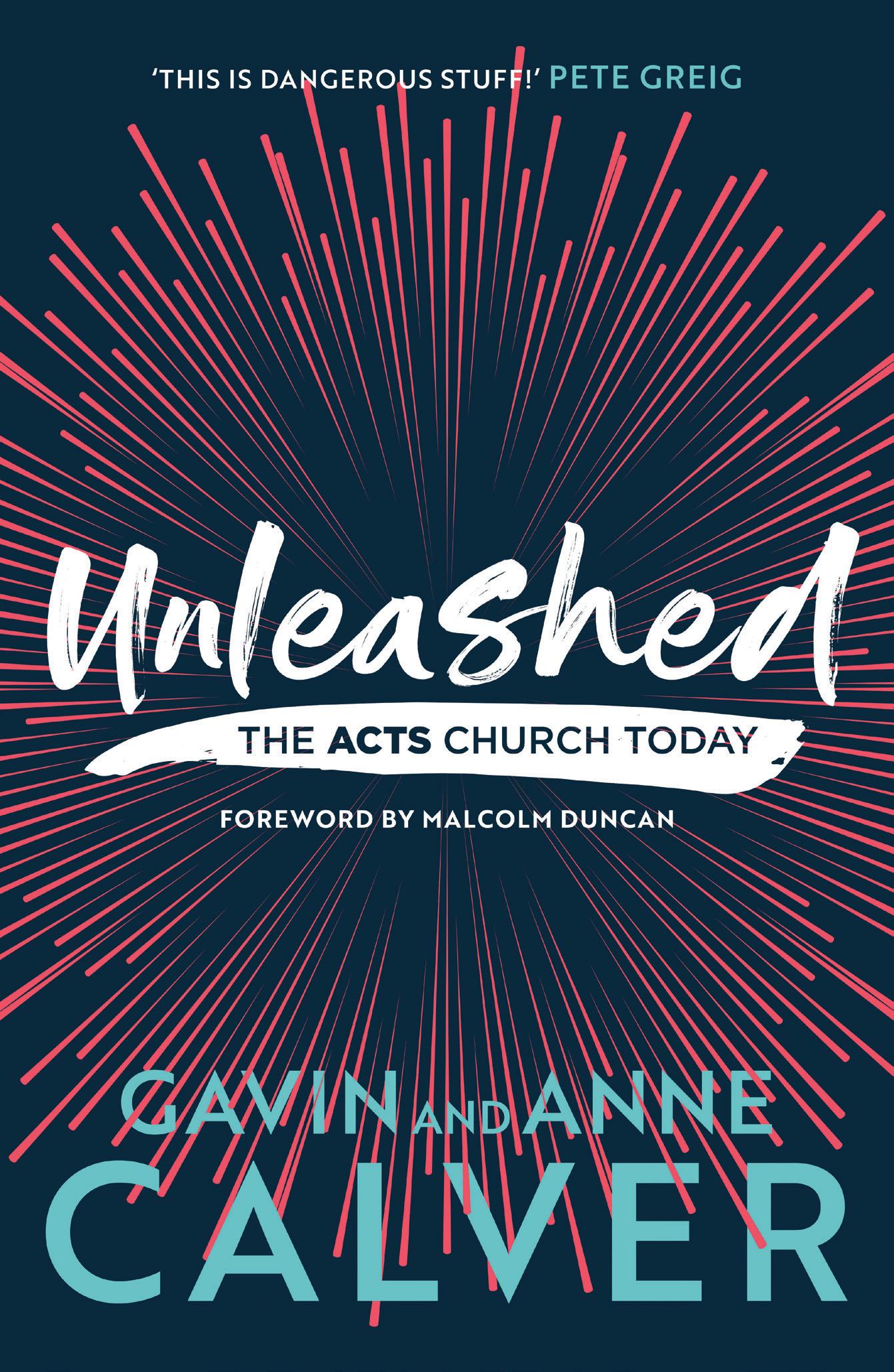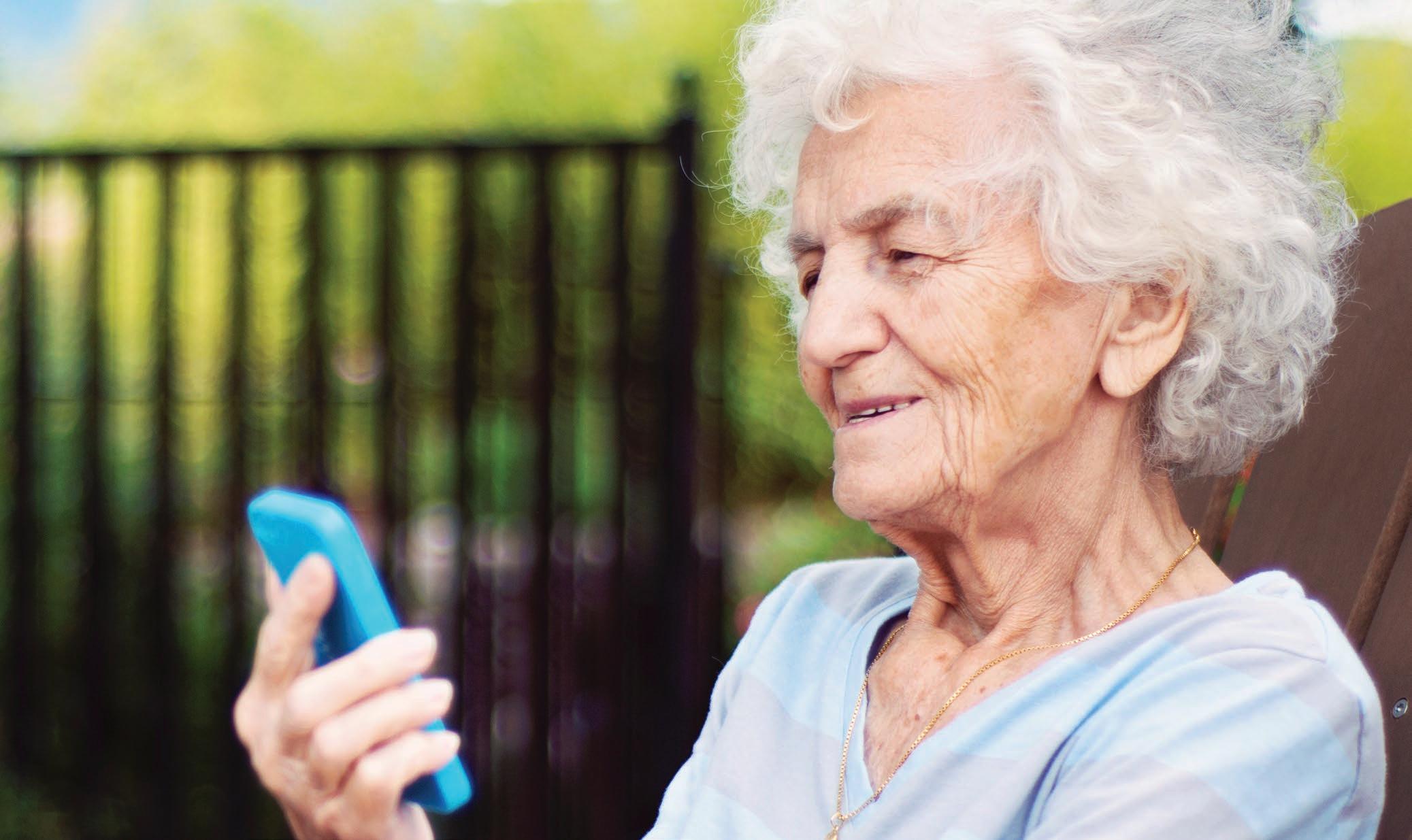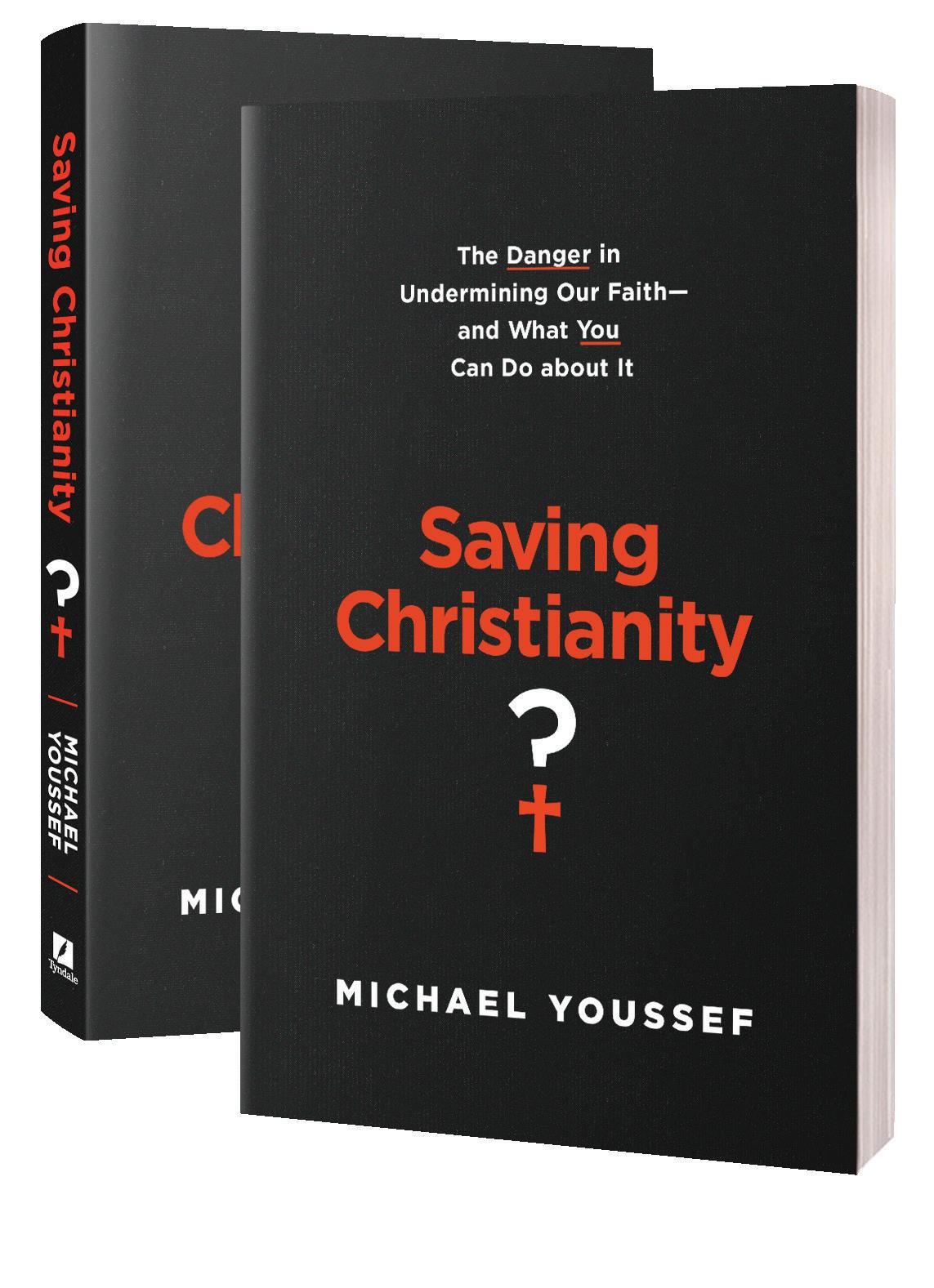
22 minute read
An unprecedented opportunity
The coronavirus pandemic is an unprecedented opportunity to love our neighbours as ourselves, says Dr Russell Rook, chair of YourNeighbour.org and partner at the Good Faith Partnership.
OPPORTUNITY AN UNPRECEDENTED
Aweek is a long time on Zoom. At the Good Faith Partnership we help leaders to respond to complex problems. Towards the end of March, we commenced a series of video conferences with church leaders and government officials about the effects of COVID-19 on our communities.
We have since talked with hundreds of ministers and, with the support of denominations, organisations and congregations across the UK, have now launched YourNeighbour.org. This national service helps local churches to respond to the challenges and opportunities of COVID-19 in their communities.
This pandemic represents the greatest challenge to society in living memory. While not all of us will catch the virus, none of us will be immune to its effects. For churches, agonising decisions abound. How do we broadcast services, cope with restrictions on communion, survive without offerings, decide whether to furlough staff, support those in need, care for those at the end of life, or conduct weddings and funerals? There is little in church life that is unaffected.
That said, the church leaders we have spoken to are not merely focused upon survival. For most, the months ahead present many challenges and unprecedented opportunity. Opportunities to befriend the lonely, care practically, pray powerfully, volunteer locally and serve our communities. Opportunities to connect with those who have long lost contact, or maybe never known the local church. Above all, an opportunity to prove Jesus right, when He
declares that His followers are the “light of the world!” None of this should surprise. We have been this way before.
In the first century, when life threatening epidemics were commonplace, members of the early church chose to stay in the cities and tend to the suffering, rather than following the crowd and escaping to the country. In the 17th century, two ministers in Eyam, Derbyshire – William Mompesson and Thomas Stanley – led their village through the Great Plague. They ministered to victims, limited the spread of the disease, and locked down their own village to protect their neighbours. While less than 25 per cent of the villagers survived, their actions saved thousands of lives. During the outbreak of Spanish Flu in America in 1918, pentecostal pastors closed their meetings to prevent further infections while risking their own lives to minister to the sick and the dying. While unprecedented in our own lifetimes, the church has faced these challenges before. And so it now falls to us to demonstrate God’s love in the time of coronavirus.
This is where YourNeighbour.org comes in. Following many days of video conferencing, we have brought together an expert team to help churches navigate the challenges and opportunities of COVID-19. The YourNeighbour.org team is here to help churches shine a light in their communities. YourNeighbour.org provides three vital services. Firstly, our website provides daily news and updates, testimonies from local churches and a host of ideas and resources. All of this with the backup of a specialist team on hand to lend support to leaders. Secondly, YourNeighbour.org provides a national portal and telephone helpline where individuals in need can ask for help, or be referred by a friend or loved-one. Our team then connects these individuals with local churches in their neighbourhood. Thirdly, YourNeighbour.org will broker ongoing opportunities for churches, government and statutory authorities to work together. If we can help you in any way, simply register at our website.
In times more challenging than these, Martin Luther wrote to fellow pastors caring for victims of the bubonic plague in Wittenberg. In 1527, Luther wrote, “No one should dare leave his neighbour unless there are others who will take care of the sick in their stead… we are bound to each other in such a way that no one may forsake the other in his distress but is obliged to assist him as he himself would like to be helped.”
Through the best and worst of times, the purpose of God’s people remains same. We exist to love God with all our heart, mind and strength, and to love our neighbours as ourselves. The days ahead may give us more opportunity to do that than ever we hoped or imagined.
MEASURES Sensible BUT VIGILANCE STILL NEEDED
The Government has taken unprecedented measures to protect people and livelihoods. Our continued voice is essential to ensure they work for the good of all in times of crisis and times of calm, says Danny Webster, head of public policy, Evangelical Alliance.
The Government has instituted unprecedented restrictions on our individual freedom in recent weeks with the explicit justification of our societal wellbeing. How should we view these measures and what is the Evangelical Alliance doing during the shutdown?
As Dr Helen Morris writes in this edition, we are most free when we are in the right conditions to flourish and thrive. Amid the coronavirus outbreak, our freedom is best exercised within severe constraint. We thrive and our society flourishes the more stringent the restrictions are on our individual freedom and autonomy. To be particularly blunt, lives are saved by stopping people leaving their home. Our communities’ ongoing freedom is served by restrictions
on our individual freedom right now.
Therefore, the measures taken by the Government to limit social interaction and enforce the closure of places where people congregate are sensible, and that includes churches. The emergency legislations, the Coronavirus Act 2020, and the associated regulations made for each of the nations of the UK, set out which premises can and can’t remain open during the coronavirus lockdown. This includes most retail premises apart from food shops and other essential supplies, but also most other venues entered by the public including gyms, cinemas and bingo halls.
The Evangelical Alliance encouraged all churches to stop meeting physically before the legislation came into effect. While this is a restriction on our freedom to gather together, it does not stop us worshipping, nor impinge our religious liberty.
Engaging with emergency coronavirus legislation The regulations include specific mention of places of worship and have very limited
exceptions for when they can be used. Places of worship are to remain closed to the public, so neither public worship services nor opening for private prayer are permissible. The two exceptions are for a church leader or worship leader to enter to broadcast or stream a service of worship from the church building, and the Government has confirmed to the Evangelical Alliance that this can include lay leaders and a volunteer camera operator or technicians, as long as appropriate social distance is maintained. As few people should be involved as possible, and some denominations have insisted that church services are broadcast from homes with no entering into places of worship whatsoever.
The second exception is for buildings to be accessible when used for essential services such as foodbanks and homeless shelters. Trussell Trust, which runs the UK’s largest network of foodbanks, has spoken of the particular strain it has felt as demand increased, supplies reduced and restrictions introduced on how it works. Many foodbanks have shifted to delivering food parcels but still need to operate out of churches and other community spaces.
The Evangelical Alliance swiftly engaged with MPs and representatives in the devolved assemblies and parliaments as the legislation went through parliament in late March. While we firmly agree that these measures are required, we must not ignore the potential for misuse of essential emergency legislation. The overall new law will expire after two years, with options for expansion by periods of six months, which is longer than we felt necessary without additional parliamentary scrutiny.
The regulations enforcing closure of premises have a stricter time limit and will expire after six months and require the Government to reevaluate their necessity every 21 days. That we were able to engage swiftly and make clear our dissent is a marker of the privilege we have to live in an open democratic society, and a reminder to never take such opportunities for granted.
We recognise and support the need for extraordinary measures for these extraordinary times, but legislation that places stringent restrictions on our freedom of movement and assembly, combined with new policy powers (and unclear guidance), mean there must be robust safeguards and scrutiny.
The Joint Committee on Human Rights, which includes members of the House of Lords and Commons, are scrutinising legislation which seeks to protect people’s right to life but is going to restrict other human rights including the right to liberty and family life, and although not mentioned in their inquiry documents, freedom of expression and freedom of religion and belief. The Evangelical Alliance is engaging with this enquiry and submitting evidence.

Huge changes buried in small print Maintaining our voice in public life is crucially important because while attention is focused on coronavirus and measures to limit the spread and ensure the NHS can cope with the increased demand placed upon it, other changes risk slipping through unnoticed. In late March, as emergency legislation was being approved by parliament, the Department of Health issued new regulations for Great Britain that permitted abortion pills to be prescribed over the phone and taken at home.
This is one of the most significant changes to abortion in Great Britain, in the same week that guidelines permitting widespread access to abortion in Northern Ireland were published, and done without consultation or parliamentary approval. This was carried out through a technical change to the ‘place’ of an abortion which was narrowly defined in the law regulating abortion, but open to amendment by order of the Secretary of State for Health – which is what happened in March.
This is a reminder of the importance of vigilance, and the Evangelical Alliance continues to engage with inquiries and consultations which continue despite the UK wide shutdown. This example is also a reminder that what is assured in one set of policy decisions cannot be taken for granted, and powers for ministers to make changes without the agreement of parliament should be limited and carefully scrutinised. Clinical guidance issued during this pandemic also raised questions about the extent to which we value the elderly and infirm in our society today.
The importance of religious freedom While there are significant restrictions on what all of us can do during the height of the coronavirus, we are privileged that we can continue to worship God and share our faith with each other. Religious freedom is the anchor of all human rights. It is the freedom to choose where our devotion and attention resides; it is the freedom to express our deepest desires, our longings, our worship, out loud and without compulsion, enforcement or sanction.
We all worship something. For many in our society this isn’t within the confines of religious systems of belief, but we all have beliefs and we all have something that is the object of our worship. This idea goes all the way back to the church father Augustine, who held that we are shaped most by what we love most, more so than what we think or do.
That means that religious freedom is vital for all people, whether they follow religious beliefs or not. It is the freedom at the root of other freedoms. This means that, on the basis of our religious freedom, we can lift our voice for the human rights of others, the dignity of all people, whether born or not yet born, whether elderly and frail or young and healthy.
We do not currently have the freedom to assemble, but we do have the freedom to worship God and to share Him with others. We must make use of this freedom, and as we look to the future and the impact of the coronavirus on our society, that freedom will motivate us to place other human rights centre stage. It means that our attention will be on the dignity and value of every human life, how we care for them now and how we prioritise their welfare.
UNLEASH YOUR FAITH and discover what we can learn from the book of Acts today


THE THEME BOOK FOR SPRING HARVEST HOME
978 1 78974 136 0 • £9.99 AVAILABLE NOW AT IVPBOOKS.COM
My friend Mimi seems to have it all – a challenging job, access to promotion, a good income, and supportive friends. At 29, she is confident that God loves her, and she wants to walk closely with Him.
But when she looks online, Mimi feels less confident in her faith. The culture of the UK tells her she should be obsessed about sex, body image, consumer choices, the environment and mental wellbeing, all in one odd package of individualism.
We are incredibly free to choose but find it hard to reconcile that freedom with our desire to serve God. That’s because the freedom the world offers is not exactly the same as the freedom we are promised in Christ.
We cannot have rights without responsibility. In the west, we assume that God’s blessing is personal, but maybe God’s desire to bless is for the whole community and we are to use our freedoms to sustain and bless others in our community.
Mimi chooses to stay true to God and has been able to talk and pray with friends at work who sense that she is not tossed about by social pressures. That doesn’t mean she is always hyper-positive, but she is real about the fact that Jesus gives her life a firm foundation, stronger than a daily dose of mindfulness. She volunteers her time in all sorts of ways – with a prison ministry, mentoring some students at her church, and demonstrating the ‘freedom’ to be a woman after God’s heart.
There is a fantastic example of women trusting in God’s empowerment at the beginning of Exodus. The Hebrews have become slaves in Egypt and life is hard. They are not free in any sense that we would recognise. But in the face of suffering, two midwives choose to serve God rather than obey Pharaoh’s cruel instruction to kill any boy babies born to the Hebrew women.
In making that brave decision to resist Pharaoh, the women release blessing – Exodus 1:20 tells us that the midwives had children of their own and God is kind to all the Hebrew people.
Mama Sarah lives in a remote village in Liberia, West Africa. Over the last few years her village has had people moving across the borders into her community who are Muslim. The newcomers have been very aggressive in sharing their faith and Mama Sarah has been determined AFTER GOD’S OWN HEART
WOMEN
By taking steps of faith, we can be freed to blessing for ourselves and for our communities, says Amanda Jackson, executive director, WEA Women’s Commission. Operating in God’s freedom can release us from society’s judgements and expectations. to not compromise who she is in Christ and to ensure her community continues to follow Jesus.
She decided to build a church meeting place. As she lay the foundations, she was mocked, then attacked and beaten, and was blinded in one eye. But that didn’t stop her. She finished building the church and today takes care of 13 children who have been rejected by their family as they follow Jesus. They worship together in the church that Mama Sarah built. I like to think I would be as bold and faithful if I faced persecution!
Operating in God’s freedom can release us from society’s judgements and expectations. The Bible has many stories showing how God notices and blesses women who might be ignored by society. Naomi and Ruth are poor widows (right at the bottom of the social pile) with few choices in life. But they both choose to follow God.
We all know the story but what we sometimes don’t notice is that God releases the women to use their talents, their perseverance and their loyalty to each other. The Law of Israel makes provision for them to survive by gleaning in the fields, but God has a bigger plan of grace and freedom. The women bless Boaz’s life in ways he didn’t see; they help the village to praise God’s goodness; and they receive blessing in the birth of the baby, Obed; and, of course, continue the amazing narrative of God’s salvation story through David to Jesus.
By taking a step of faith, Mimi, Mama Sarah, the midwives Shiphrah and Puah, as well as Ruth and Naomi, show that God can release us in surprising ways, whatever our age and circumstances. We can be freed to blessing for ourselves and for our whole community.


By Gavin Calver, CEO of the Evangelical Alliance WITNESS FAITH & PRAYER,
As I look out on my usually busy street and see that it is just about deserted, I find myself pondering these unprecedented times. Much of the church has had a sense for a time that something big was coming and that 2020 would be a significant year, but none of us knew that coronavirus would be the activator.
Driving back from speaking at Gold Hill Baptist Church on Sunday, 15 March, there was a strange sense in my gut that things were about to change. The media stories were growing and the idea that things were about to become less free was increasingly clear. Within days, everything was being live streamed and Zoom or Skype had quickly become a friend to all.
We have entered a new season, and in these days, these first few months for me of ministering as CEO at the Evangelical Alliance, we are committed to continue spreading the gospel, being a strong, united voice for the church, and supporting our membership throughout this epidemic. A lot of this ministry will be online for the months to come, but we believe that although scattered to our own spaces, the Lord is supernaturally gathering us all.
We were involved in calling a National Day of Prayer on Sunday, 22 March, and it was such an encouragement to join with thousands of Christians lighting candles in their windows as a signal of hope to
the nation. As a family we gathered in that moment and raised our voices in prayer – the presence of our King was tangible and knowing we were joining our brothers and sisters to seek His face was powerful.
The question is, “How do we begin to respond in these days?” There are three things that we are encouraging the church to do. First, pray. Pray for the NHS workers diligently and faithfully serving the sick. Pray for the sick themselves – for their healing. Pray for a sudden end to the coronavirus, that it would depart as quickly as it seemed to come, right across the world, in Jesus’ name. Pray too for our government and those in leadership to receive God’s wisdom in these days.
Second, don’t panic. Fear is more widespread and contagious than the virus itself, and we cannot bow the knee to it. One of the most consistent commands in the Bible is “do not be afraid”, and the Lord always wants to breathe peace into our homes and lives. The words of Psalm 91 are important to hold onto in these days: “I will say of the Lord, ‘He is my refuge and my fortress, my God in whom I trust.’”
The third thing, which comes as a result of praying and not being afraid, is demonstrating a different way, showing the world what is different when you put your trust in Jesus. We stand on the Rock of Ages even though the nations find themselves on shifting sand. How can we actively demonstrate the love of Jesus to our neighbours, families and friends in this time? WhatsApp street groups, food packages outside doors, offers to pray for people on the phone, sharing the hope we have in Jesus – let’s keep creatively imagining how we can be good news.
In these unique days we are having to refocus a lot of what we are doing, but reimagining helps us to pull together on how we can continue to serve the church in making Jesus known. It is my firm belief that this crisis has given us unprecedented opportunity to share the gospel. There is so much fear and hopelessness around and into this we can bring our hope in Jesus. We can act differently, love differently, speak differently, and see our communities transformed for Jesus.
So, please stay safe, keep praying, be a non-anxious presence, and show what’s different when you have Jesus. This is an incredibly difficult time for our country, but we will get through this and, as the people of the gospel, we must tell a different story at this time of challenge. Go for it, family.
This is a uniquely significant and challenging time for the church in the UK. The Evangelical Alliance is committed to serve the church through this crisis. Together making Jesus known during the coronavirus pandemic
We are here to share the hope we have in Jesus. As an alliance of evangelicals, we seek to be brave and kind during this pandemic that is bringing suffering and anxiety to so many communities. Together we are making Jesus known. This is a uniquely significant and challenging time for the church in the UK. The Evang elical Alliance is committed to serve the church through this crisis.
We are here to share the hope we have in Jesus. As an alliance of evangelicals, we seek to be brave and kind during this pandemic that is bringing suffering and anxiety to so many communities. Together we are making Jesus known .
Sharing the gospel Raising our voice
The gospel is central to everything we do. We will never cease proclaiming the gospel, through unity, words, and actions that lead people to a life with Jesus. We will celebrate and share, through the media, online and in print, the stories of transformed lives and communities from across the church and throughout the UK. The gospel is central to everything we do. We will never cease proclaiming the gospel , through unity, words, and actions that lead people to a life with Jesus. We will celebrate and share, through the media , online and in print, the stories of transformed lives and communities from across the church and throughout the UK. Sharing the gospel But the world has changed , so we are changing too. Through prayer, collaboration and innovation , we are focusing our work in three key areas.

We are speaking up and out in the media, the church, the public square, and in government and politics. We provide a hope-filled, trustworthy and confident voice throughout the immediate crisis and speak prophetically about the longer term impact. We are here to champion the scattered church serving the vulnerable through this pandemic.
We are speaking up and out in the media , the church , the public s quare, and in government and politics. We provide a hope-filled , trustworthy and confident voice throughout the immediate crisis and speak prophetically about the longer term impact. We are here to champion the scattered church serving the vulnerable through this pandemic. Raising our voice
Supporting our members
We are investing time and resource to reach out, listen, and engage with our members. We are finding out how to pray for our members, what your needs are and what God is doing. We are spotlighting the great things happening, the challenges being faced, and the hope being realised by our members for our communities. We are investing time and resource to reach out, listen , and engage with our members. We are finding out how to pray for our members, what your needs are and what God is doing . We are spotlighting the great things happening , the challenges being faced , and the hope being realised by our members for our communities. Supporting our members
To find out more, please visit: eauk.org /response
For all the latest news, information , and stories, go to: eauk.org /coronavirus To find out more, please visit: eauk.org/response
NEW FROM DR MICHAEL YOUSSEF NEW FROM DR MICHAEL YOUSSEF NEW FROM DR MICHAEL YOUSSEF NEW FROM DR MICHAEL YOUSSEF


For Your Gift of Any Amount! For Your Gift of Any Amount! For Your Gift of Any Amount! For Your Gift of Any Amount!
THE GOSPEL IS OUR ONLY HOPE.
THE GOSPEL IS OUR ONLY HOPE.
THE GOSPEL IS OUR ONLY HOPE.
THE GOSPEL IS OUR ONLY HOPE.











